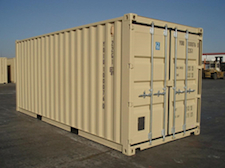Red Hat, Cisco Prepare Containers For Prime Time

Cisco Systems and Red Hat are joining forces to ready Linux application containers along with Docker for prime time.
In a relatively detailed blog post co-authored by Cisco and Red Hat engineers, the partners noted they have been working together on Red Hat's open-source container initiative called Project Atomic. It will serve as a lightweight Red Hat Enterprise Linux host to deliver applications as Docker containers.
Project Atomic "provides a space and the tools for the ecosystem to collaborate on small-footprint host operating systems," Cisco noted.
The partners are of one mind about the convergence of Linux containers and virtual machines as platforms for allowing multiple applications to run on the same physical systems. The partners said they are now working together to allow enterprises and service provides to begin using Linux containers in production.
The bottom line, they added, is leveraging container technology to speed the provisioning of applications.
Linux containers are being touted as one way to speed application development and delivery since they only need to be built once, then can run on bare-metal servers, virtual machines, public clouds or network devices.
Containerized applications capable of booting and restarting in seconds compared to 15 minutes for virtual machines are being promoted as a way for enterprises to use public cloud services to handle higher transaction volumes while reducing their costs. "Linux containers have the potential to transform application delivery - in the data center, network core, and network edge," Cisco argued.
Among the use cases for Linux containers, Cisco said, is "intercloud portability," which it defined as a way to "natively support Docker containers in public and private clouds" with the added benefit of exchanging "application components between clouds."
Linux containers also promise to squeeze more performance out of existing infrastructure by quickly "spinning up" containers when workloads are heavy and winding them down when not needed, the partners said.
Cisco and Red Hat acknowledged that container technology has been around for a decade, mostly as a solution looking for a problem. Speeding application delivery appears to be the tipping point for the technology since, as Red Hat executives frequently note, "the app is king."
"What’s new is the use of containers to encapsulate all application components, such as dependencies and services," the Cisco blog noted. "When all dependencies are encapsulated, applications become portable."
Some cloud service providers are already scaling use of Linux containers, including Platform-as-a-Service offerings like Red Hat's OpenShift. The partners said they would work together to plug some existing holes in the infrastructure, including security issues raised by possible kernel exploits at the host operating system level that "affect all containers on the host."
There is growing urgency to fix security and other problems as various vendors prepare containers for production environments. Along with Red Hat OpenShift and Cisco application containers, others cited include Apache Mesos, Google Kubernetes and VMware CloudFoundry.
Cisco and Red Hat also offered this market forecast: "The adoption path for Linux containers will likely be similar to that for Linux – that is, slow at the beginning, and then picking up speed." They also predicted that service providers would lead adoption with enterprises following "as they become more confident in the technology and see the return on investment from service providers."
Related
George Leopold has written about science and technology for more than 30 years, focusing on electronics and aerospace technology. He previously served as executive editor of Electronic Engineering Times. Leopold is the author of "Calculated Risk: The Supersonic Life and Times of Gus Grissom" (Purdue University Press, 2016).












